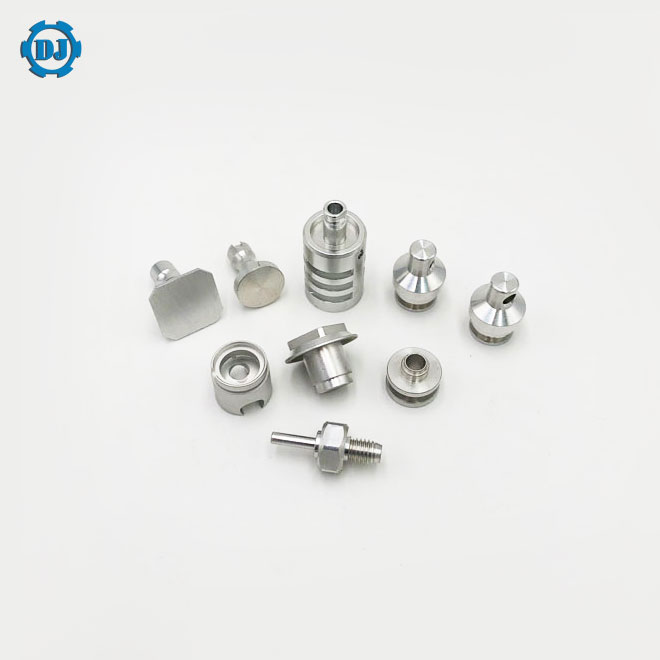Challenges, Difficulties & Solutions in CNC Machining of Stainless Steel Parts | CNC Stainless Steel Machining
CNC stainless steel parts and services for CNC turning stainless steel have a broad range of applications including chemical, food machinery, electromechanical, environmental protection, household appliances, and other industries with its characteristics such as heat resistance, high and low temperature resistance, wear resistance, chemical corrosion resistance, rust resistance. etc. The quality of stainless steel machining parts is crucial, so in this article, dajinprecision.com will introduce the challenges, difficulties, and solutions of CNC stainless steel machining.

Challenges, Problems in CNC Machining Process of Stainless Steel Parts
Different kinds of stainless steel have different problems in CNC machining due to the variety of mechanical properties and chemical composition. Some types of stainless steel are difficult to achieve appropriate surface roughness in cutting, while some stainless steels are easy to achieve the required surface roughness, but in the cutting process the tool is particularly easy to wear. It's critical to learn about the CNC machining problems, challenges and troubleshooting tips for improving efficiency.
1. High thermal strength
High thermal strength and toughness bring challenges for high speed CNC turning of Austenitic stainless steel and Martensitic stainless steel, their hardness and tensile strength are not high, only equal to #40 stainless steel, but the elongation, section shrinkage and impact value are relatively high. In this way, it is not easy to be cut off in CNC machining process, and the work consumed is considerable. Under the same temperature, the CNC stainless steel machining is more difficult than that of common carbon steel because of its high thermal strength. Relatively, the strength of stainless steel decreases less at high temperatures.
2. Work hardening
In the process of CNC high speed turning, the metal in the cutting area is deformed by the extrusion of the tool tip to the workpiece material, and the slip occurs in the crystal, the lattice distortion, the dense structure and the mechanical properties are also changed. Generally, the hardness can also be increased by 2-3 times. The depth of hardening layer in CNC process can vary from tens to hundreds of microns, so the hardening phenomenon caused by the previous machining tool has a negative impact on the next one, and the high hardness of the hardening layer causes the tool to wear easily. The work hardening trend is not conducive to CNC stainless steel parts machining.
3. Strong adhesion of chips
During the process of CNC stainless steel cutting, cutting debris is easy to adhere to or melt on the tooltips and edges, forming debris tumors, resulting in worsening surface roughness of the machining parts, increasing vibration in processing and accelerating tool wear. At the same time, due to the difficulty of chip removal, especially the continuous chip, the chips that are cut will be squeezed, especially in the processing of internal holes, which makes the chips squeezed more seriously.
4. Poor thermal conductivity
In the CNC stainless steel cutting process, a large amount of heat energy generated can't be quickly discharged, which will inevitably be transmitted to the cutting tool, so that the temperature of the cutting part increases. Moreover, a large amount of cutting heat can't be transmitted in time, even to the chip as a whole, resulting in the total heat on the tool is more than that of ordinary carbon steel, which makes the cutting tool edge lose cutting performance at high temperature.
In addition, due to the limitation of the cross-section shape and the poor strength of the tool itself, it is easy to produce vibration in the process of cutting, and the tooltip is easy to burn out or crack due to excessive local temperature in the process of cutting.
How to solve these problems or reduce the damage? Although CNC stainless steel parts have high thermal strength, deformation, severe hardening, large amounts of cutting heat and difficult heat dissipation during CNC machining, the quality of CNC machining parts can be guaranteed by choosing appropriate cutting tools, cutting fluid, cutting amount, cutting parameters and processing methods.
Dajin Precision is a skilled CNC turning parts and service supplier offering high efficiency and high-quality products at affordable prices. We focus on CNC stainless steel parts, CNC brass turned parts, CNC steel parts, CNC aluminum parts, CNC plastic parts, CNC alloy parts machining and more over 10 years.
